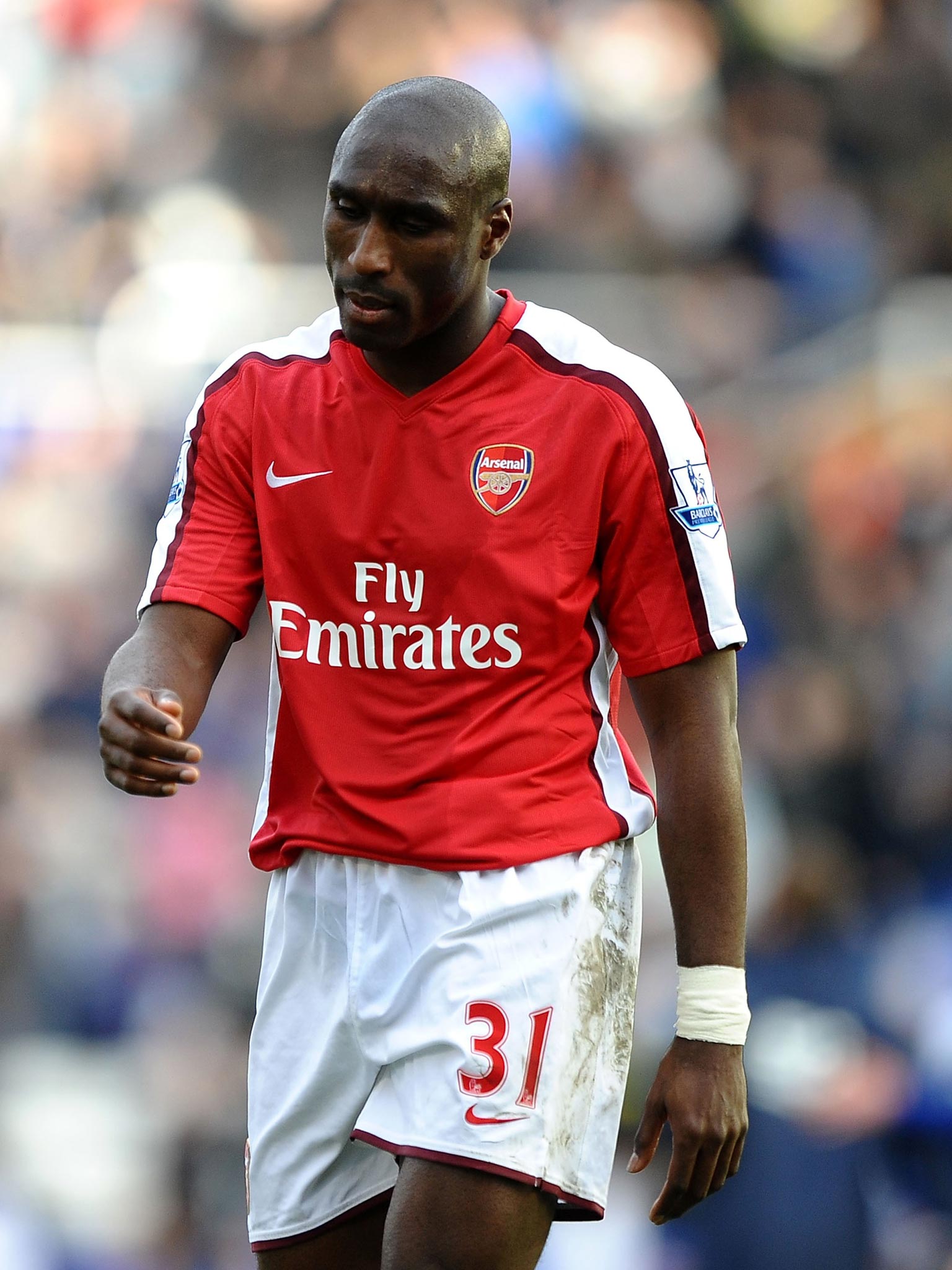Tottenham v Arsenal: Sol Campbell comes across as tortured and complex in his biography
Former England defender’s biography reveals a man who wanted to be loved but also needed space

Your support helps us to tell the story
As your White House correspondent, I ask the tough questions and seek the answers that matter.
Your support enables me to be in the room, pressing for transparency and accountability. Without your contributions, we wouldn't have the resources to challenge those in power.
Your donation makes it possible for us to keep doing this important work, keeping you informed every step of the way to the November election

Andrew Feinberg
White House Correspondent
It begins with abuse and ends in abuse. In between there are many triumphs, cups lifted, honours gathered but it keeps coming back to the dark side.
Sol Campbell is one of the best England defenders of modern times, a colossus for numerous clubs and 73 times for his country, yet on the evidence of his biography, a clunky, David Peace-wannabe but still a compelling read, he has departed the game with more painful memories than good ones, left it with a sense that football has not appreciated him as he feels due.
At times there is a desire to shout “snap out of it, man”, enjoy what you have, what you achieved, against the odds of a tough childhood. But that temptation, once the game’s lingua franca – get on with it, stand tall, it’s a man’s game – needs to be resisted.
This authorised telling of Campbell’s life is not one of the great sports books, the writing lapses too often into cliché for that: there are upset applecarts, time often stands still – except when the clock is ticking. However, it is still a story told well enough to fascinate.
There is the occasional tale to lighten the mood; Gary Lineker hiding in the bushes to avoid a run and David Ginola’s half-time habit of a sneaky fag in the toilets followed by an espresso. These are brief football yarns in the story of a man who never seemed to sit comfortably in the dressing room; on the pitch yes, off it no.
The contrast between the on-field giant and the off-field man, tortured by a need to be appreciated, suffering occasional bouts of depression, searching for a father figure and desiring to be part of a family – in the footballing and the personal sense – yet simultaneously to be left alone, is intense.
Here is a complex character, one who had the qualities to lead but who often appears to be searching for someone to help lead him.
When he signed for Arsenal in 2001, following late-night meetings at David Dein’s house, Dein suggested: “I felt fatherly to him.” “Come to us and you will be part of our family,” tempted Dein. That is what Campbell wanted and did not believe he was getting from Tottenham: “They never said ‘We love you and want to build a team around you’.”
There is a neediness to Campbell that surfaces throughout his career. At times there are moments of paranoia. After a charge for allegedly assaulting a Derby steward in 1998 was dropped, Campbell wondered whether a lack of support over the incident from his club held a deeper, less honest purpose. “Were Spurs trying to get some leverage over me in order to force me to sign a new contract?”
The two most interesting sections in the book are his often lonely childhood and his troubled relationship with his father, omnipresent yet distant, occasionally brutal and always uninterested in his youngest son; and the night in 2006 Campbell could not face going out for the second half of a game against West Ham and fled the country.
They are linked. His father had not long died and the loner had never felt more alone, a fog of depression engulfing him. Thierry Henry describes Campbell sitting in the dressing room with his boots off saying he couldn’t go out again. “Can’t isn’t something Sol Campbell says,” remembers Henry.
In the book’s afterword, Campbell writes that he “forgives” his father. He writes too that he “forgives” his family. The afternoons on his own in the family home produced a shy boy. Shy boys become shy men and only the shy can appreciate its occasionally crippling nature.
It makes Campbell’s willingness to stand out from the crowd rather than seek its anonymity all the more admirable. That too many hide within it, happy to go with the flow, is part of the reason he suffered so much abuse in the sport. This is the way it is, they say with a shrug.
Campbell received barbaric abuse from Tottenham’s supporters, racist abuse from Sunderland fans and others. Then there was the homophobic abuse. Has any player had to experience such a level of abuse, occasionally tipping into the criminal, for such a prolonged period of time?
It is a painful reminder to the game – a simple game surrounded by a complex swirl of societal issues – of its faults, and its failure to deal with them, from a player who graced it and should be aware of his own worth rather than having to be repeatedly reminded.
Sol Campbell, The Authorised Biography by Simon Astaire; Published by Spellbinding Media
Subscribe to Independent Premium to bookmark this article
Want to bookmark your favourite articles and stories to read or reference later? Start your Independent Premium subscription today.
Join our commenting forum
Join thought-provoking conversations, follow other Independent readers and see their replies
Comments